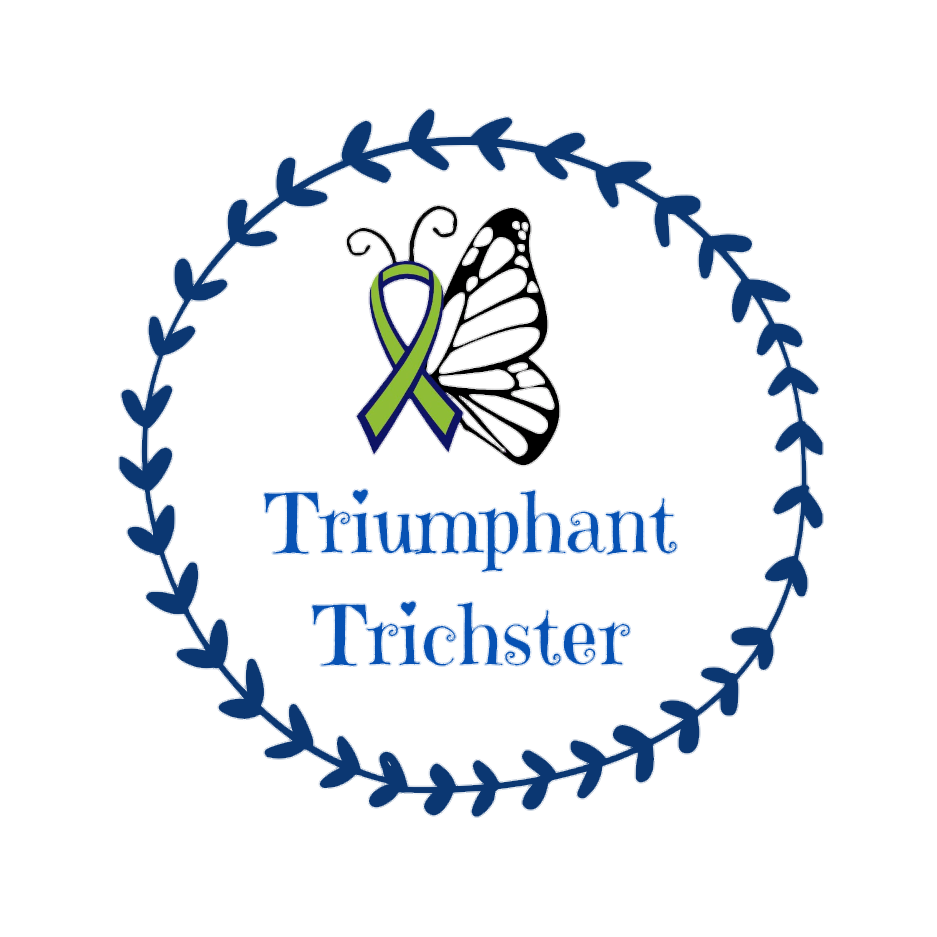|
My very first “original” Trichster Sister, Kara, had the idea of doing an updated interview for my blog. I first met Kara at the TLC Foundation's BFRB conference in 2018, when she was just 8 years old. We've been great friends since then and she is like a little sister to me. She is now 14 and about to start high school! A lot has happened since I last interviewed her in 2020. In 2022, I even flew to California on the 4th of July to surprise her with a visit (we hadn't seen each other since 2019). Read on to see what she's been up to! Gessie: So why don't you tell us a bit about yourself for those who don't know you? Kara: Some of the things I like to do are learn about geology and I still collect Beanie Boos. I still like singing. And I like reading a lot now. G: How has your trichotillomania been since I last interviewed you 4 years ago? K: I've had more control and awareness when I'm pulling, but it is hard to stop, like that will always be like that. More or less it's been good and bad, it's a mix in between. G: What are some strategies you use to try to manage your pulling? K: I usually have a fidget, it doesn't even have to be a fidget, it could just be like a rubber band and I hold it in my hand and stretch it. Just something that keeps my hands busy to distract me. And something I do now is wear a hat which also helps, but I don't really have hats so I just use a bandana. Or when I wear my wig, that really helps too. Would you mind telling me a bit more about your experience with Hair Club for Kids and getting your wig? K: Yes, so Hair Club is a very nice community. They're very accepting and make sure I'm comfortable. The workers are always nice. G: So right now you don't have your hairpiece on. K: No I do not. For summer I like to keep it off because it's easier to keep it clean and I only get three free wigs a year. G: So you just graduated from middle school and are starting high school soon. How do you feel about that and how does trich affect you in school? K: Well I know most of the people that go to my high school. I'm not scared, but I am nervous because it's a big campus. I'll adjust so I'm not very worried about it. As far as trich, I usually want to cover my head. I don't want to be asked a bunch of questions. G: When I was in school I was just constantly worrying and anxious about if people were going to notice me. Do you feel that way too? K: Kind of, but a lot of people know me already since I'm from a small town. G: How do you feel your attitude and relationship with trich has changed from when you were younger versus now as a teenager? K: I am more confident now. I just have to be aware of when I'm picking, and if I could cover it up I don't really care and I'm not too worried about it. But sometimes I think it would be really nice to have a full set of hair and I wonder what it would feel like in the wind or in a pool. G: What are some other goals that you have for yourself that don't have anything to do with trich? K: To be successful in high school and get the best grades that I can. G: What would you say to other kids and teens who have trich and might be struggling? K: I would say try to have as much self confidence as you can, because if you don't then it's just going to drag you down. G: What is your favorite thing about yourself? K: Probably that I'm nice and respectful, and very energetic. I'm always trying to help others. And my confidence. G: What makes you a “Triumphant Trichster”? How are you brave when it comes to trich? K: Overall I've learned to accept that I am who I am, and trich does not take over me, I can take over trich. Because I am me and trich is a part of me, but it's not who I am. G: Absolutely, I love that! One last question: If you could say something to your younger self, what would you say? K: Find the confidence to feel bad for other people that make fun of you for their own personal reasons.
0 Comments
I've been pulling my hair out since I was 11 years old, I am now 25. I've been through it all: patchy bald spots, glued on wigs and hairpieces, head completely shaven, half eyebrows, no eyebrows, you name it. I currently have no eyebrows and it's been over five years since I have had any.
But it's also been about five years since I've had any major bald spots or hair loss on my scalp. I feel so fortunate for that. While I am not defined by my hair or my appearance, I'm not going to lie, it's a relief to now have a full head of hair after years of dealing with various stages of hair loss. I am a peer coach with HabitAware and facilitate their monthly virtual kid hangout groups. The groups are going so well and are a lot of fun. I wish I had something like this when I was a kid growing up with trichotillomania! It's an amazing feeling to be able to foster this supportive community for the next generation. On the most recent hangout call, one girl with trich brought up having bald spots. I told her that I empathized because I too used to have bald spots, then briefly mentioned that I don't pull as much anymore and haven't had bald spots for a long time. The conversation then changed topic, but later on towards the end of the meeting, I asked if anyone had any questions. A different girl asked me how I stopped pulling and grew my hair back. And the truth is, I haven't stopped. Honest to God, I still pull at least a few strands of hair every single day. The difference though between now and several years ago, is that I can pull a few hairs and leave it at that, without it turning into a full blown episode. I am not “pull free” and I know I never will be. I'm not saying that as a hopeless lost cause, I'm saying that as someone who has made peace with herself. Being pull free is not my goal and never has been. I could go on and on as to why I am against the “pull free” mindset, but to put it simply, it is just not a realistic or attainable goal, at least for me personally. So many people with trich, especially younger ones or those who may be new to the world of trichotillomania, are focused solely on stopping their pulling. When the girl asked me “how did you stop pulling?” I could hear some desperation in her voice, as well as expectant hope that perhaps I had the magic cure. But unfortunately I don't have the magic cure. I don't have all the answers. I wish I did and could share with others. But I really don't know how my pulling has decreased so drastically and how I have somehow managed to keep a full head of hair for years. I think one of the younger attendees at the hangout said it best; one girl, only about 7 years old, said she looks at her trich like a roller coaster with ups and downs. In my own experience I have found this to be true. My pulling tends to wax and wane, and I just happen to be lucky that it's been mostly at bay for a while now and I'm currently at a high point on the roller coaster. What I can tell you is this: my life changed significantly for the better when I shifted my focus on how I could stop pulling, to instead learning how I could *live with* trichotillomania. After years of countless efforts to “stop pulling” and not being very successful, I realized I had to change gears. No matter how hard I try, sometimes I just literally can NOT stop pulling! As trichsters, we get SO frustrated when other people tell us to "just stop pulling” so why do we hold ourselves to the same standards? If we could stop, we would! I had to come to terms with the fact that this is a chronic mental health disorder that I can't always control. Acceptance goes a long way. I don't see this as defeatist, I see it as freeing. When we take the pressure of being "pull free" off of ourselves and we release that control over our compulsive behavior, we can then embrace our trichotillomania and ourselves. We can't always control our trichotillomania, but we CAN choose how much we let it control us. I actually feel MORE in control of my life now that I quit trying to stop pulling. I had to take a deep look at how trich had affected me. It's not even the act of pulling itself that was the problem. Pulling doesn't hurt for me, it feels pretty darn good actually! It was everything that came along with pulling and the resulting hair loss that sucked: the feelings of guilt and shame, feeling alone and misunderstood, isolating myself and missing out on everyday life experiences. These are all things that we do have control over and can be remedied. Of course that's much easier said than done. But here's what I realized: most of the work when it comes to trichotillomania recovery is actually internal, and not about the behavior itself. Read that again. Recovery looks different for everyone but that's what it's been like for me. I don't want to stop pulling, I just want to feel good about myself and find happiness. Trich doesn't have to take that away from me unless I let it. I am more than my hair and appearance. I learned to love myself for who I am inside. I no longer carry the burden of shame. I am not alone, there is a huge community out there of people fighting the same fight who understand. I just had to find my people and they are now my second family. And I don't let missing eyebrows or bald spots on my head stop me from living my life to the fullest and participating in the things I want to do. I want people to know that being “pull free” is not the end all be all when it comes to defining recovery and success with overcoming trichotillomania. Again, none of this is easy. It took years and a LOT of internal work for me to get to where I am today. But I am living proof that with determination and the right mindset, it is absolutely possible to live a happy fulfilling life *with* trichotillomania. Not just live, but THRIVE! My fiancé's birthday was this week and I've been reflecting on our relationship and how much I love and appreciate him. I want to share about my personal experience with dating and romance as a trichster. When I was a teenager and my hair pulling was at its peak, dating was one of the last things I thought about doing. That's not to say I didn't want to date. Oh, I absolutely did! I've always been a bit of a hopeless romantic. I would fantasize about finding that great kind of romance, and perhaps my view of love was a bit over idealized. I had tons of crushes, but I was always a pretty reserved person, and due to the immense shame I felt because of my trichotillomania, I became even more withdrawn. I barely had any friends in school, let alone dating prospects. Being on the autism spectrum as well, I was quite socially inept. It was always easier to just keep to myself than try putting myself out there. Between the ages of 16 and 17, however, is when I became very open about my trich, sharing my story on my personal social media accounts, as well as on public online media outlets. This was a big deal! Now, anyone could search my full name and be able to easily discover my online articles about having trich. But that was a “risk” I was willing to take for the sake of breaking free from my shame. It was a necessary step I needed to make for my own personal catharsis and recovery. I decided from then on that I didn't want to keep my trichotillomania a secret from anyone in my life. From the age of 18 onwards, I periodically used dating apps. I would talk to a few guys on a surface level, but never got to the point of sharing deeper details, and then I would basically chicken out and delete my profile before I had the chance to make any real connections. This cycle repeated on and off for years. I absolutely hate online dating culture, but having an almost nonexistent social circle and being a college dropout, I had very limited options to meet people. But then at nearly 21 years old, I finally went on my first real date! I matched on an app with a guy who had actually gone to my high school and graduated a year before me. We went to a diner and eventually I did bring up the topic of me having trich. It was pretty casual and he was really cool about it. At this point I was very comfortable in my identity and it wasn't that big of a deal to share that with him. The date went well and I liked him, but he was leaving the following week to travel out of the country for over a month, and we just didn't keep in touch, so it never progressed any further. A month later in December 2019, on my 21st birthday, I went on another date with a guy from an app. Our conversations flowed online, but meeting in person was SO painfully awkward. I honestly can't even remember if I had brought up my trich with him. At any rate, we never spoke again after that date. After that, I “swore off” dating for a while, until finally in July 2020, during the covid-19 pandemic, I was bored and made a new online dating profile. At this point I was still very inexperienced, and still lacked a lot of social skills. But I ended up matching with a guy 7 years my senior, and we hit it off. I felt comfortable with him and he was easy to talk to. Perhaps because of the fact that it turned out that he had autism as well. Surprisingly I actually didn't tell him about my trich until maybe a week or two of talking. When I did finally tell him about it, it was no big deal to him. Because of the pandemic and other circumstances, we “dated” online for 7 months before we finally met in person and made our relationship official. He was my first ever boyfriend. I would stay over at his apartment overnight and I felt grown up. Admittedly I was still quite naive at the time and this was completely new territory for me. When I stayed over at his place, there were times where we would be watching TV on the couch together and my hand would absentmindedly wander up to my eyebrows. If I felt any prickly hairs, I wouldn't be able to focus on anything else until I would abruptly get up, retrieve my mini tweezers from my purse, and lock myself in the bathroom for up to 10 minutes. When I came out and returned to my place next to my boyfriend, I would apologize. He'd be a little confused about the whole ordeal, but he was sympathetic. He would ask if everything was okay and I would reassure him it was, but I did feel bad and a little embarrassed. For a long time my mental illnesses made me feel damaged, broken, and unworthy of romantic love, even though I so desperately craved it. I had relatively high self-confidence, so I honestly don't know why I felt this way in terms of dating. But my first boyfriend finally made me believe that I was in fact worthy of experiencing love, even if things did not end up working out between us. We technically dated for about a year, but we only actually saw each other in person a handful of times. Eventually I reached a point where I felt I wasn't getting what I needed out of the relationship, and though it was a difficult decision, I decided to end it. After things ended with him, I briefly dated a couple other guys, and I had once again told them about trich very early on. So here's the thing: trichotillomania and my involvement in the BFRB community are so deeply interwoven into my life. I'm not defined by my disorder, but I'm very proud of my journey and I now consider it a positive part of my identity. So after a while it's hard for me to not bring it up in conversation. I know it may be controversial to share something that personal with a potential date so prematurely, but I feel like I'm hiding such a big part of myself if I don't tell them. It's also kind of a “test” to see how accepting they are. If someone has an issue with it, they are obviously not worthy of pursuing a relationship with. Luckily I have never had a guy react negatively to the news that I pull my hair and eyebrows. They have all been kind towards me about it, but I've honestly never felt fully understood, seen, and validated until I met my fiancé. Which brings me to Richard. At the time when I had matched on a dating app with Richard in November 2022, I had recently published my memoir, Triumphant Trichster. We messaged briefly then spoke on the phone for hours that night. Somehow the topic of tattoos had come up in conversation, and while on the phone I sent him a picture of one of my tattoos that includes the green and blue trichotillomania awareness ribbon. I explained the meaning behind it which led me to also mention my book and advocacy work. He thought it was very cool and admirable and had actually started reading my book on Kindle that very same night. My book chronicles my entire trichotillomania journey from ages 11 to 23, and includes very intimate details. It's a LOT to take in about someone you just started talking to and may potentially date. Yet somehow I didn't scare him off and we started dating. And the rest, as they say, is history. We got engaged in August 2023 and I know he's the person I'm meant to spend my life with. I can tell Richard anything and everything, and he knows things about me no one else does. I have never aligned with someone else so perfectly on my beliefs, worldview, and values. Whereas with previous boyfriends I felt like I kind of had to tailor and hide certain aspects of my personality, creating a curated version of myself, with Richard I can be completely unapologetically me. He encourages and supports me in all my endeavors. He thinks the world of me and is always telling me things like how proud he is of me and how beautiful I am. He is truly my best friend and soulmate. I honestly don't know how I got so lucky to have found him, but I am so grateful that I did. As a hopeless romantic who used to fantasize about that “fairytale” kind of love, our relationship is everything I've ever wanted and more. It's genuinely a dream come true. BFRB Awareness Week is here!
October 1st-7th BFRB stands for body focused repetitive behaviors, and includes compulsive hair pulling (trichotillomania), skin picking, nail biting, and other excessive self-grooming behaviors. I have multiple BFRBs but primarily trichotillomania. I started pulling out my hair at age 11 and my eyebrows at 14. I'm sure almost all my followers on social media know this information by now, either from me sharing about it, having a BFRB of their own, or having a loved one with a BFRB. But I will keep on sharing my story, always. Here is why: I am on the board of The Lyder Foundation for BFRBs and also serve as programs director. This past weekend we had our 1st anniversary celebration. We had about a dozen people come in person to Manhattan, and had about 20 people join us virtually on Zoom, from all over the globe, including the UK, Spain, and Mexico. It was a great success! After the virtual portion concluded, I got to connect with some of the people who were attending in person. Bianca (founder and president of TLF) introduced me to two of her friends who work in the media. She said "this is Gessie, she is one of our board members and she is living with trichotillomania." She clarified that when speaking about me directly she uses the phrase "lives with trich," but specified that when speaking about BFRBs publicly, she would say "suffers from a BFRB." There's an important distinction because when speaking to the public, she wants people to understand the seriousness of BFRBs, that they are a real medical condition that many people are suffering from. That really resonated with me. Personally I don't consider myself to be "suffering" anymore. Though I have no eyebrows and still pull from my head occasionally, I consider myself to be in recovery. I am full of self love and acceptance. I don't beat myself up for pulling. I'm not defined by my eyebrows or hair loss nor am I defined by how much I engage in pulling. I have many people who love and support me, and I don't let trich hold me back in life like I once used to. I am quite honestly THRIVING! But everyone is in a different place on their journey, and many individuals with BFRBs ARE in fact still suffering, often alone, living in shame and secrecy. These behaviors are widely regarded as taboo and people who engage in them usually keep it hidden. The more we talk about something, the less power shame has on us. Sharing my story saved my life. I am out and proud. When I was younger and in the woes of keeping my trich a secret, I used to wonder what my life would look like in the future. Would I be able to get a job? Would I ever find love? Would I be happy? Well, now at nearly 25 years old, I have a long term fulfilling job that I love, I have the most supportive fiance, and I am really truly happy. All that, even though I still have trich. Teenage Gessie would be in both awe and shock at the life I have now. 🥲🥹 I want to be the person I needed when I was younger. And I'd say I'm doing exactly that. I have dubbed my personal branding Triumphant Trichster. That is also the name of the memoir I wrote and published last year. I identify as a "Trichster," not as a sufferer. I once felt like trich stole my identity. But then I formed a different identity. Trich helped shape that new identity by me taking the negative and turning it into a positive. So I identify as a Trichster as a way of taking back the power it once robbed me of. And yes, I am indeed triumphant! While I am personally no longer suffering, I share my story for the people who ARE still suffering. Because you never know who may need to hear your story at any given time. We need the public to recognize the gravity of the suffering many individuals with BFRBs are still dealing with. BFRBs may not be curable, but shame and stigma is. You are not alone. There is hope. Together we are stronger. 💚🩵💙💜 For BFRB Week, I wanted to highlight some of my awesome Trichster Sisters. Here is Alyssa, who is 8 years old and in 3rd grade. One year ago on a trip to Pennsylvania, I got to meet Alyssa and her mom Brigitte in person! I recently had a video call with the two of them to learn more about Alyssa's story, and we would like to share to spread awareness. Alyssa has had trichotillomania for a little over two years. She pulls from her eyelashes and leg hair, although she has not pulled her lashes in a while. She says she pulled her eyelashes "because my brain told me to and I wouldn't stop." It helps her to cope with frustration and feelings. A hard thing about having trich that she doesn't like is that she has to take medicine. When she was pulling her eyelashes she would cover up the spot that she pulled from with eyeliner or mascara because she didn't want to get in trouble. She said "I wish my eyelashes were invisible so my mom couldn't see them when I was picking." Alyssa told me that she has "issues" (in her words), but she is accepting of herself regardless, and that's part of what makes her special. When asked what else is special about her, Alyssa responded, "I'm funny, I make babies laugh, I'm a good friend, fashionable, kind, and smart." She enjoys coloring, playing with kids, playing games, going to school, and likes Legos, Peppa Pig, and Polly Pockets. She plays on a bowling league and she is a Girl Scout. Alyssa would say to other kids who have trich that "you're pretty no matter what." For BFRB Week, October 1st-7th, I wanted to highlight some of my awesome Trichster Sisters. I have been interviewing some of the girls to share their unique perspective and raise trichotillomania awareness. Here is 12 year old Hailey. When I was on a trip to Pennsylvania one year ago, I actually had the pleasure of meeting Hailey and her mom in person! Gessie: How long have you had trichotillomania? What areas do you pull from? Hailey: I've had it for four years, I started in 2016. I originally started with my eyebrows but then I ripped out all my eyebrows and then it escalated to my head. I started wearing headbands and then it got to the point where I wanted to shave my head to look like Eleven [from Stranger Things]. I mainly pull at just my hair, but sometimes my eyebrows, and my eyelashes if I have mascara on. G: What are some hard things about having trich? H: The fact that a lot of times when I go to school and I have bald patches people ask me "what's that?" And I have to lie. When I do tell my friends about it no one really understands. I have to explain it and they don't understand. G: What are some good things about having trich? H: Something cool about it is the fact that some people do think my shaved head is cool and they find it badass. And meeting you; you are the only person I know who understands. G: What would you say to other kids who have trich? H: I would say to them that you aren't alone because I know that when I first found out that I had it I thought that I was alone and thought that I was weird. G: What do you wish people understood about trich? H: I wish people understood that it's not that easy to control because a lot of people say "why don't you just not do it?" and they don't understand that it's not that controllable. G: Do you do anything to raise awareness for trichotillomania? If not, do you hope to in the future? H: I don't but I'm going to soon. I'm thinking of making a video on tik tok. * Edit: after video chatting for the interview, Hailey has since posted some videos on her tik tok about trich and BFRB week! I am so proud of her for sharing her story and raising awareness! G: What are some things that you like about yourself? What makes you special? H: A lot of people say that I am always there to help people out and I think that that's something special about me because I feel like kindness is hard to find these days. I like my face, my eyes and my lips are my favorite features. For BFRB Week, October 1st-7th, I wanted to highlight some of my awesome Trichster Sisters. Here is Keira, who turns 7 later this month and is in 1st grade. She wants to help raise BFRB awareness, so I interviewed her (with some help from her mom)! Keira's mom Amanda says Keira has been twirling her hair since she was a baby, but around July/August 2015, she started pulling it out. She was two years old. Keira pulls in the back of her head and sometimes up top. I asked Keira what are some hard things about having trich, she said, "Trying to stop and trying to never do it again. Sometimes when I'm sad and mad I do it but not anymore. Now I can draw, or watch television, or do reading." She said some good things about trich were receiving her bear and having me as a Trichster Sister. When asked what she would say to other kids who have trich, Keira replied, "I would say instead of pulling your hair you can draw or read or watch television." But she also wants them to know that it's okay if you do pull. She also said it's important to talk about it and not hold it inside. Keira says she wishes people understood "That I have trich. Trich is like pulling your hair out of you." To raise awareness for trichotillomania, she told her teacher about it when she started kindergarten last year. Some things that Keira likes about herself: "I like that my eyelashes are long. I'm nice, I'm very friendly, and I love my stuffed animals. I sleep with 100! I'm a dancer. I do jazz, tap, and ballet." This is her fourth year dancing! Some fun facts about Keira, in her own words: "I play Sonic with my brother. I like to watch movies 100 times, like Beetlejuice!" I had so much fun doing this interview, thank you Keira and Amanda for helping raise trichotillomania awareness during BFRB Week!
For BFRB Awareness Week (October 1st-7th), I wanted to highlight some of my awesome Trichster Sisters. First up is my very first "original" Trichster Sister, Kara. She is 10 years old and in 5th grade. I first met Kara at the 2018 TLC conference in San Francisco. We instantly became friends and developed a close connection, that I started calling her my little "Trichster Sister." That's where the term originated. She is my inspiration! These are the pictures she wanted me to post. I interviewed her to share her perspective and here is what she said: Gessie: How long have you had trichotillomania? What areas do you pull from? Kara: About 5 years. Usually the sides of my head and sometimes the top. It hurts from the bottom. I don't eat my hair, but I eat the root. G: What are some hard things about having trich? K: I don't really like pulling and my hands get numb. G: What are some good things about having trich? K: Meeting you! And everyone else at the trich conferences and all the fun times. G: What would you say to other kids who have trich? K: It's okay, I have it too. You're not different, you're special in your own way. G: What do you wish people understood about trich? K: I wish people understood how we feel when they say "Ew that's so gross" because that is SO disrespectful. And the way I dress, that I'm not a boy, duh! G: Do you do anything to raise awareness for trichotillomania? K: I made a poster and I like listing things down about me and my trich and tell them what not to say. G: What are some things that you like about yourself? What makes you special? K: I think that having so much energy is special and having trich is special about me because everyone isn't perfect, they're special in their own way. They have their differences and they have their "in common" stuff. I love singing. I like that I met you by having trich. My mom introduced you to me. I like that I'm nice, that I'm pretty, that I'm brave. G: Anything else you want to add? K: I like cats and Beanie Boos and Taylor Swift. I like acting crazy because I have AD HD. I'm so happy that I met you. |
AuthorGessie M. Perez Archives |




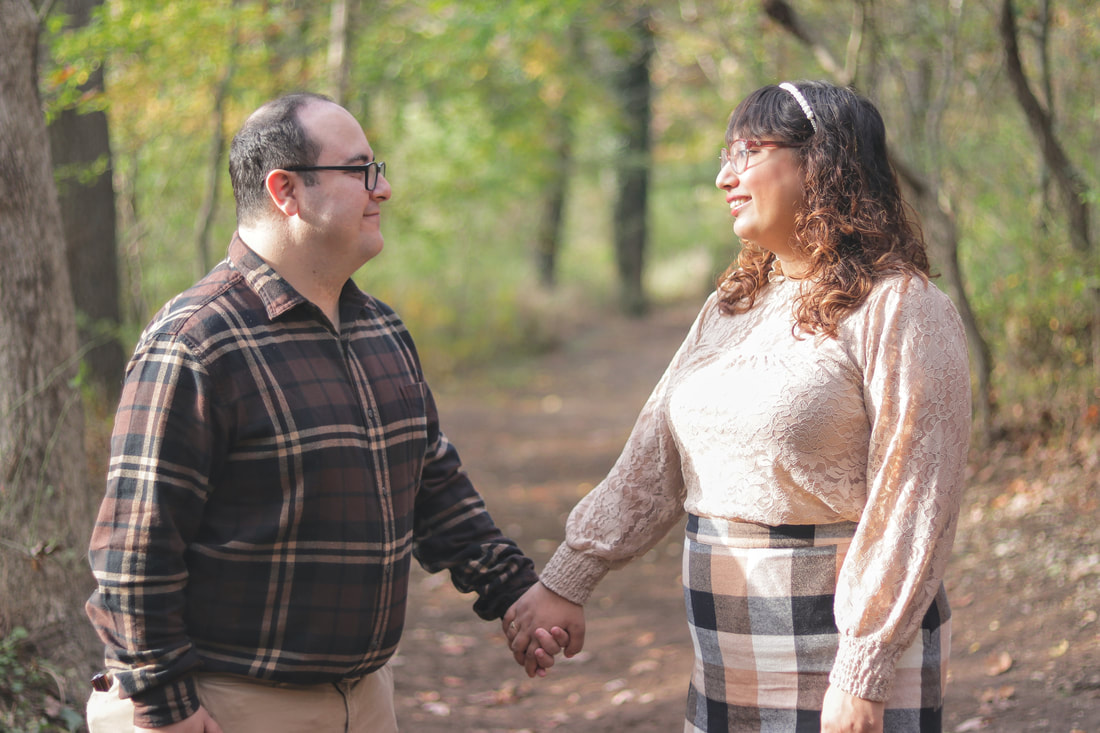
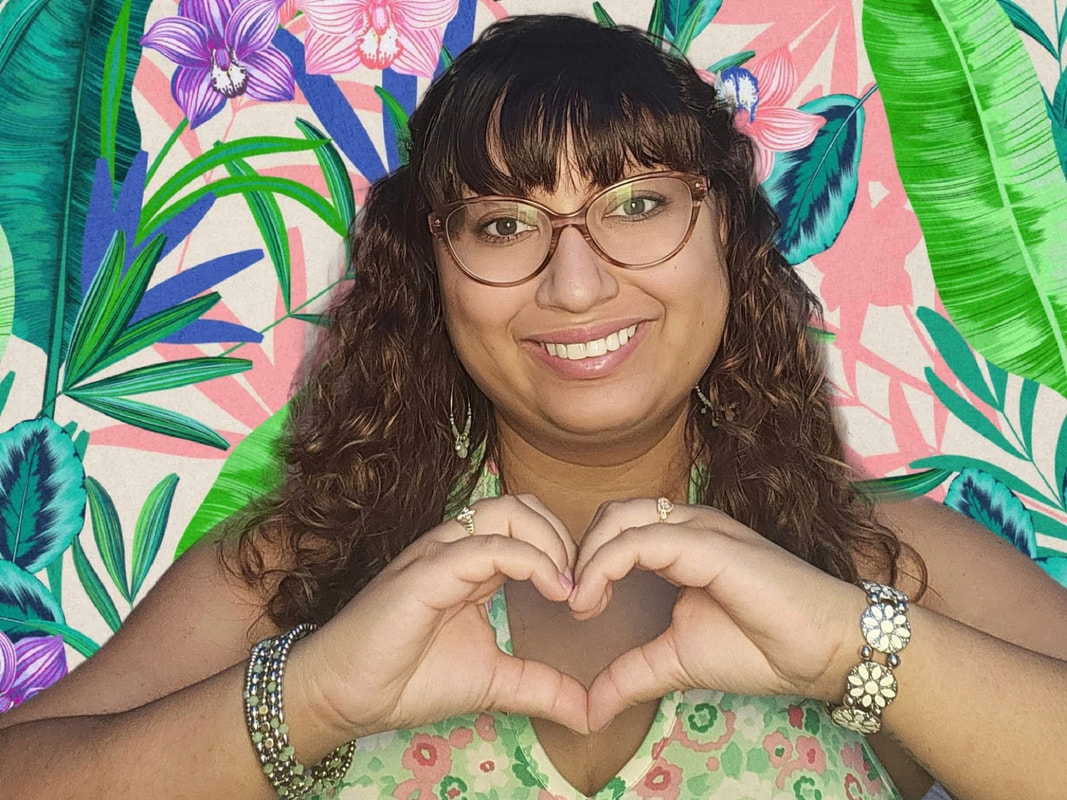
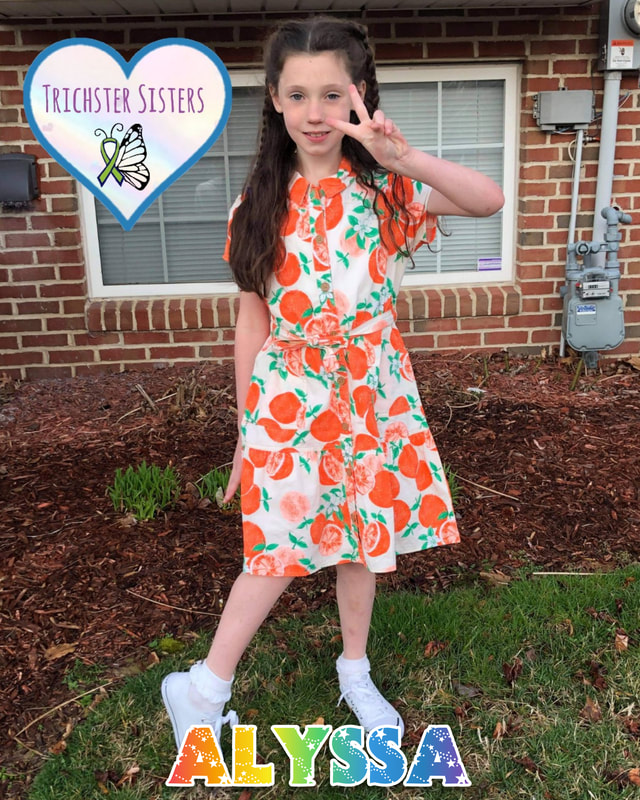
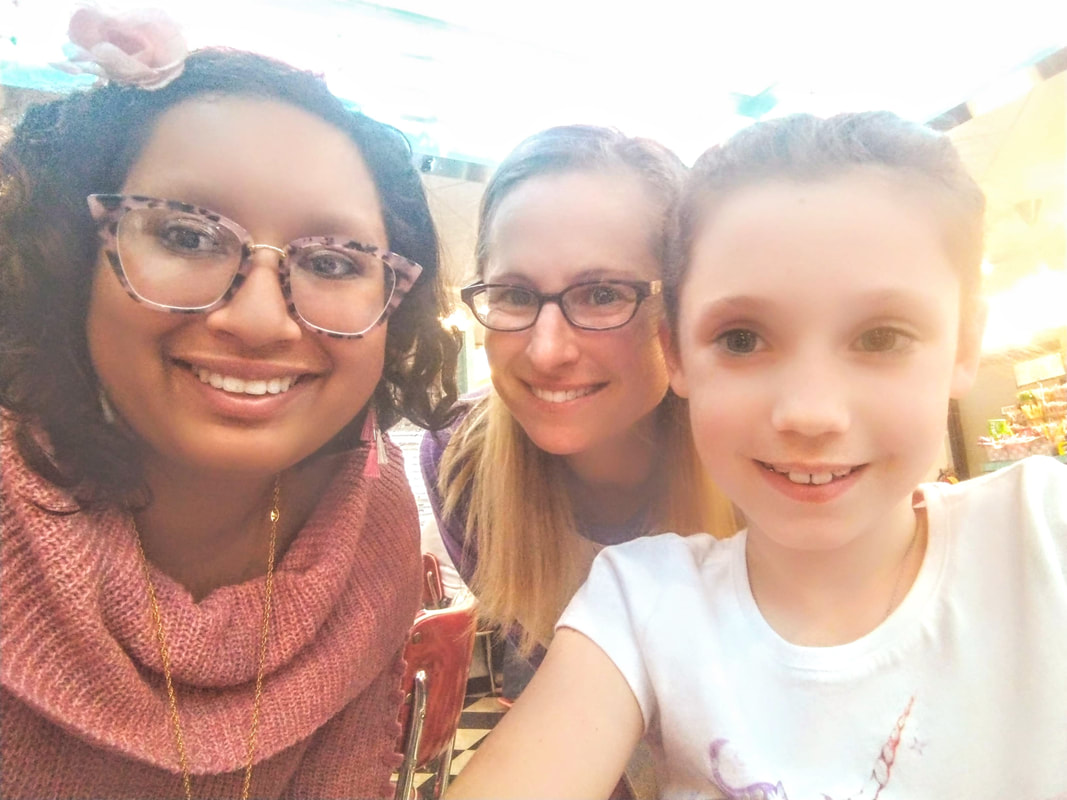
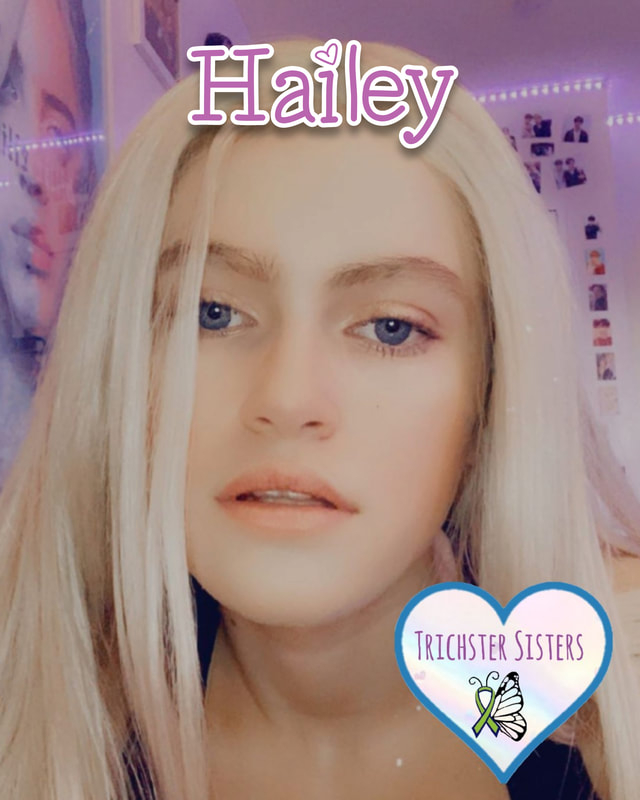
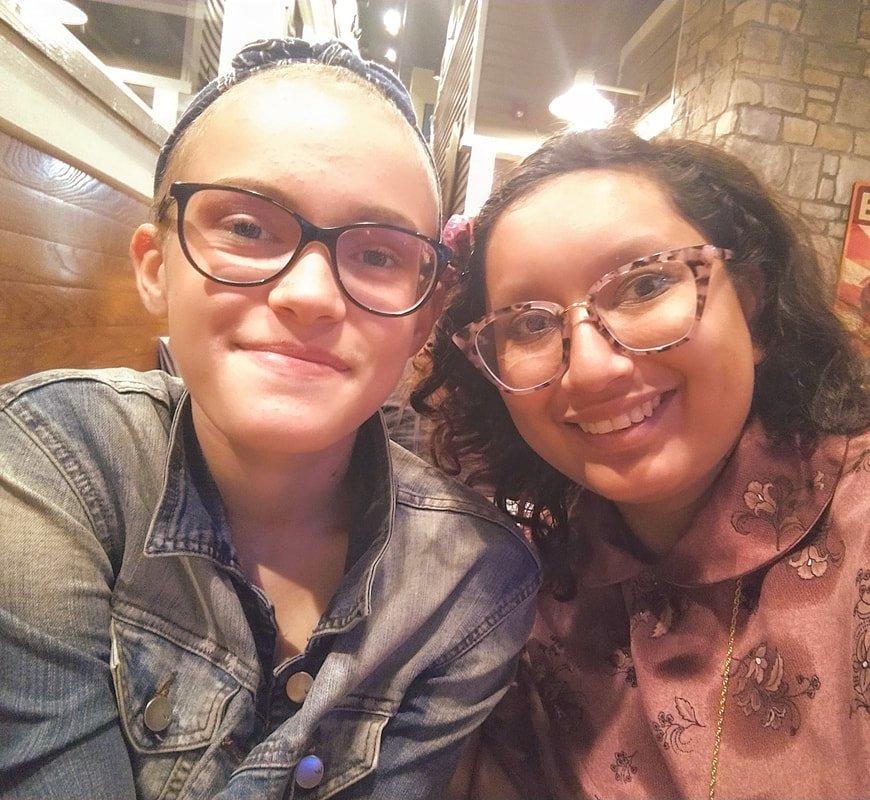
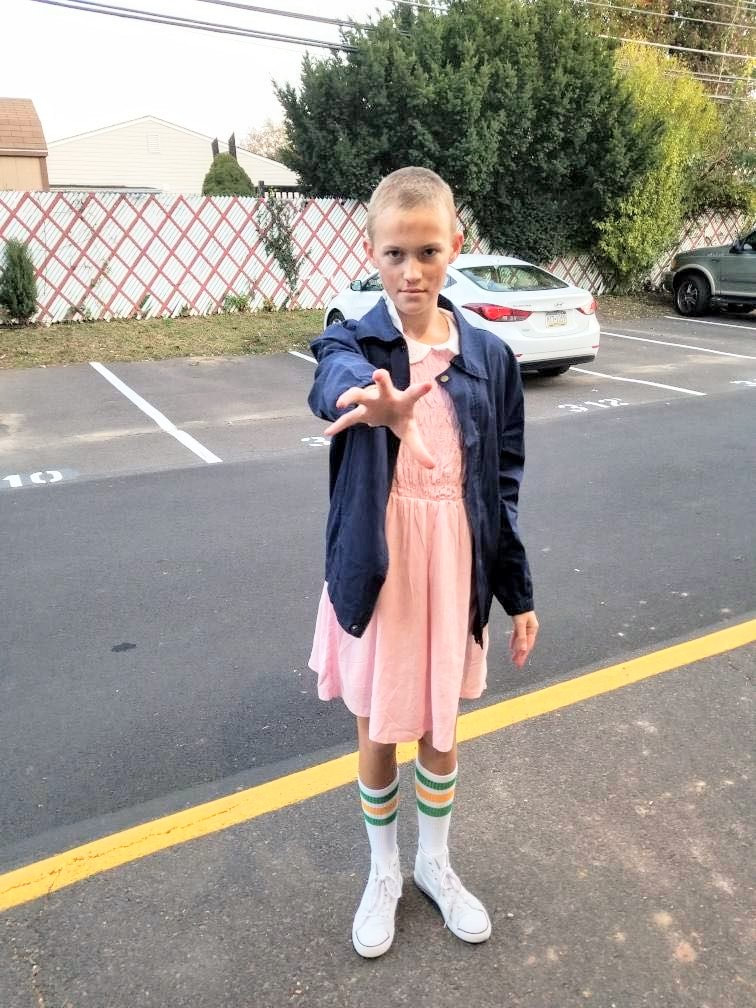
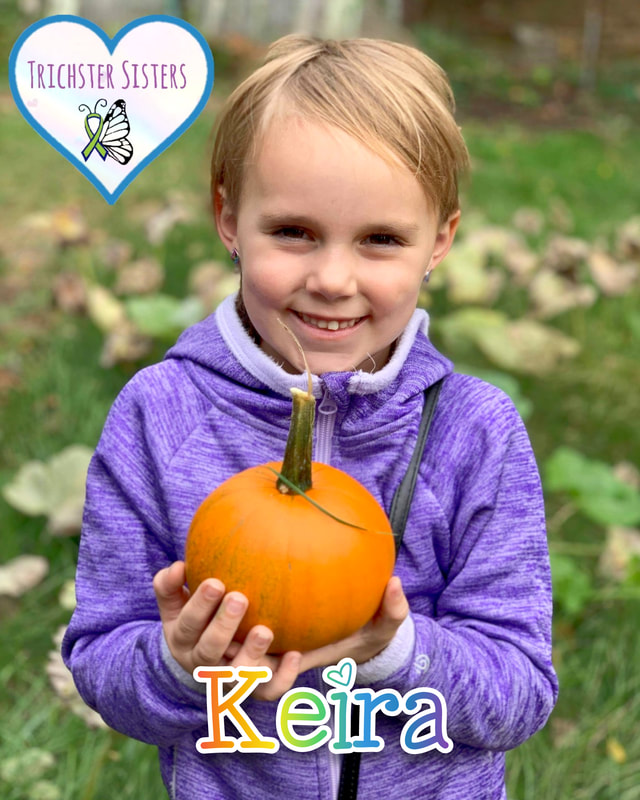
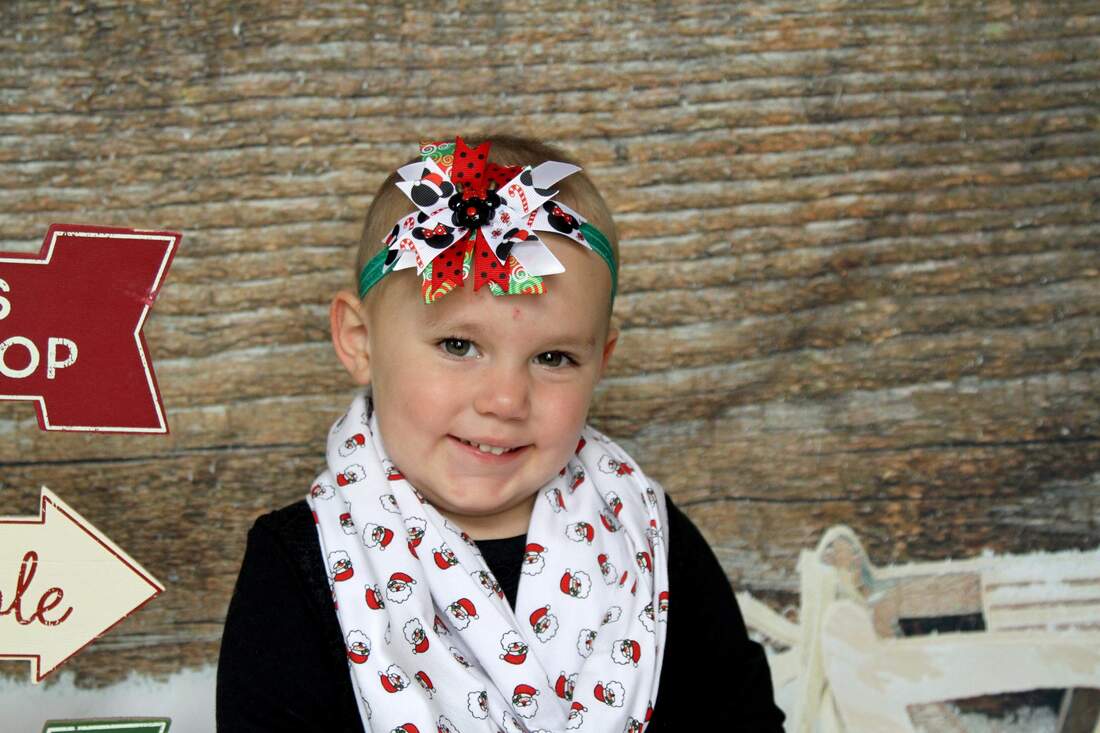
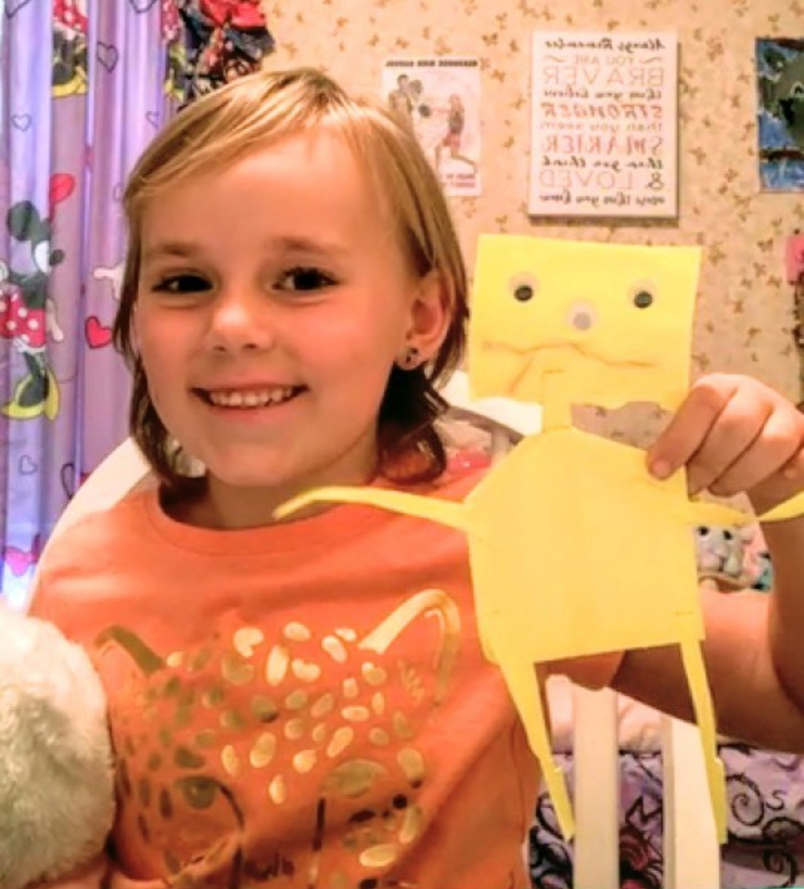
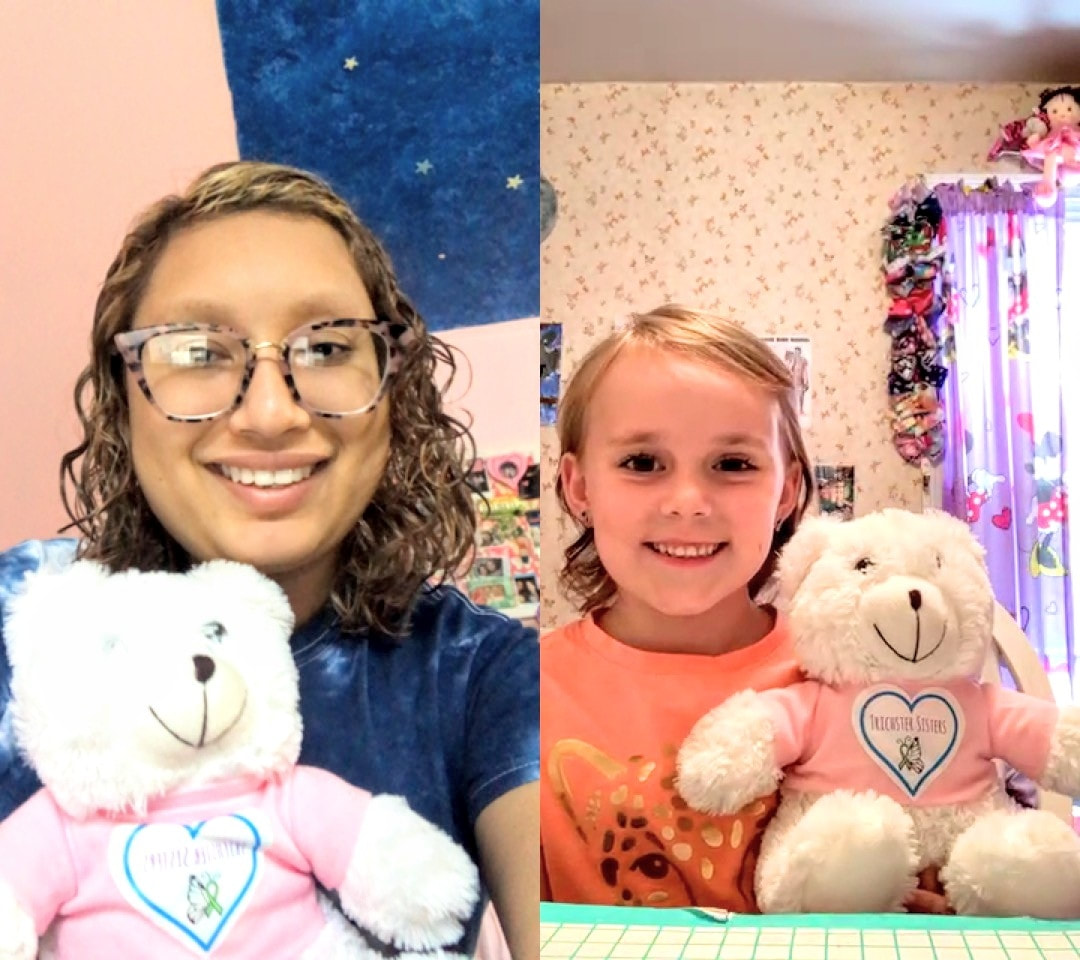
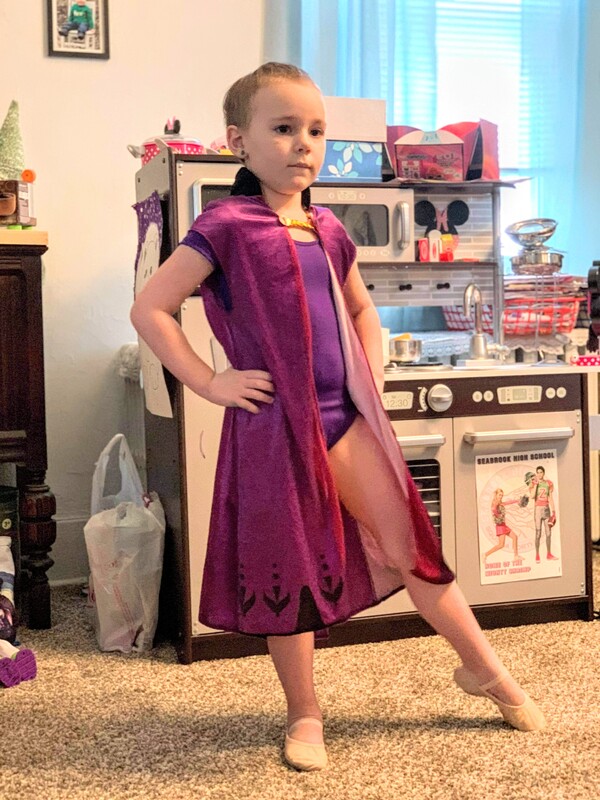
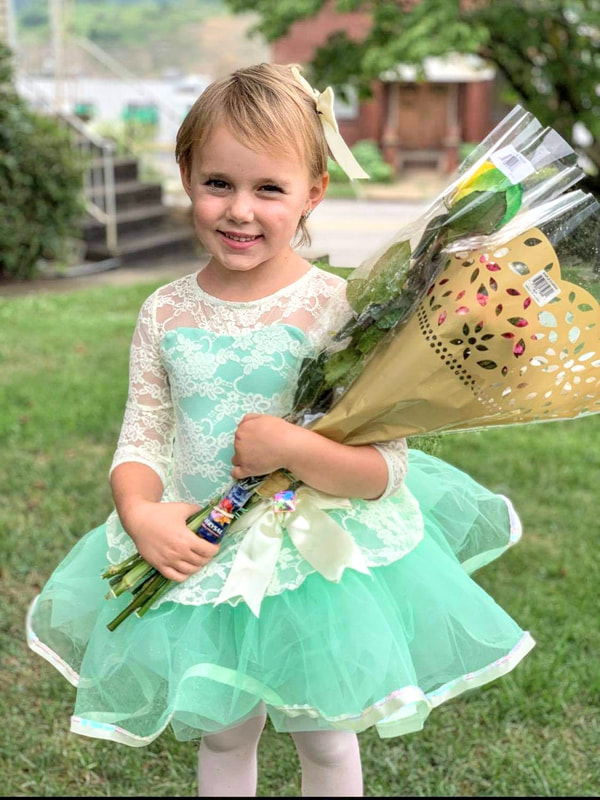
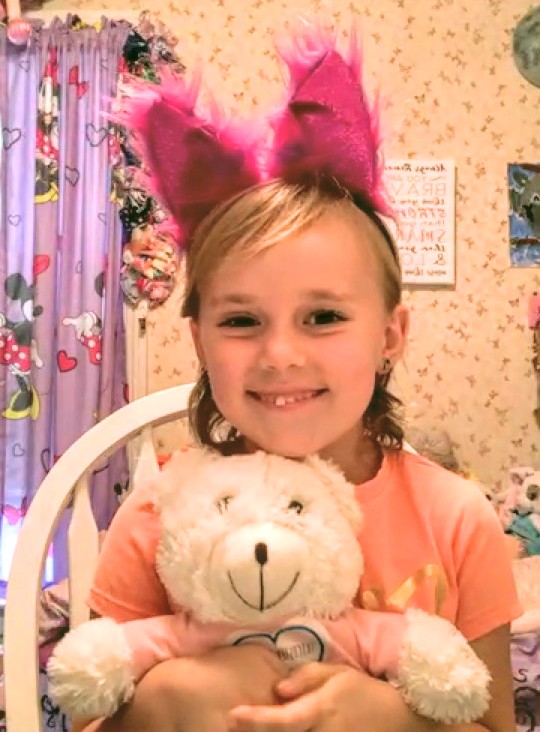
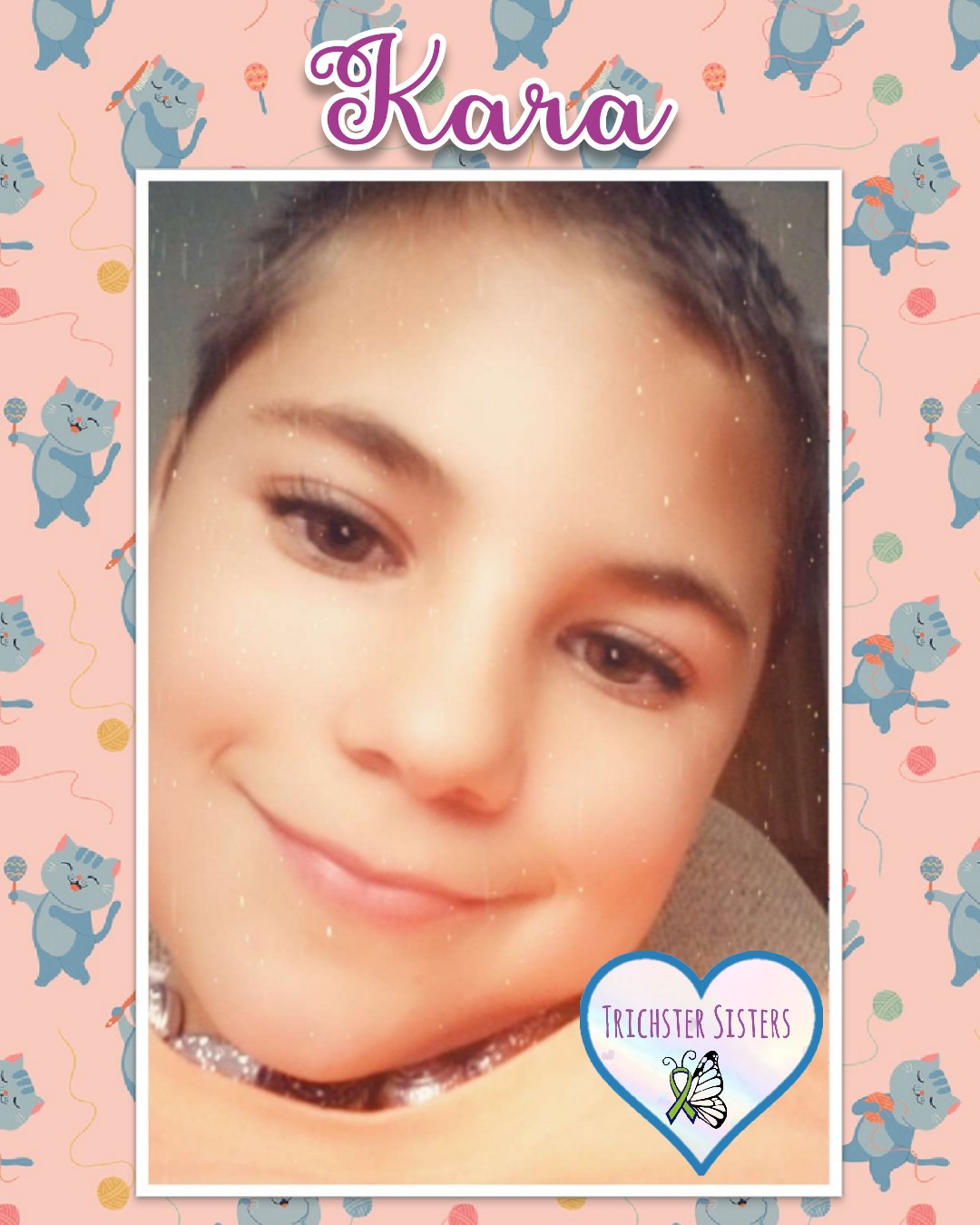
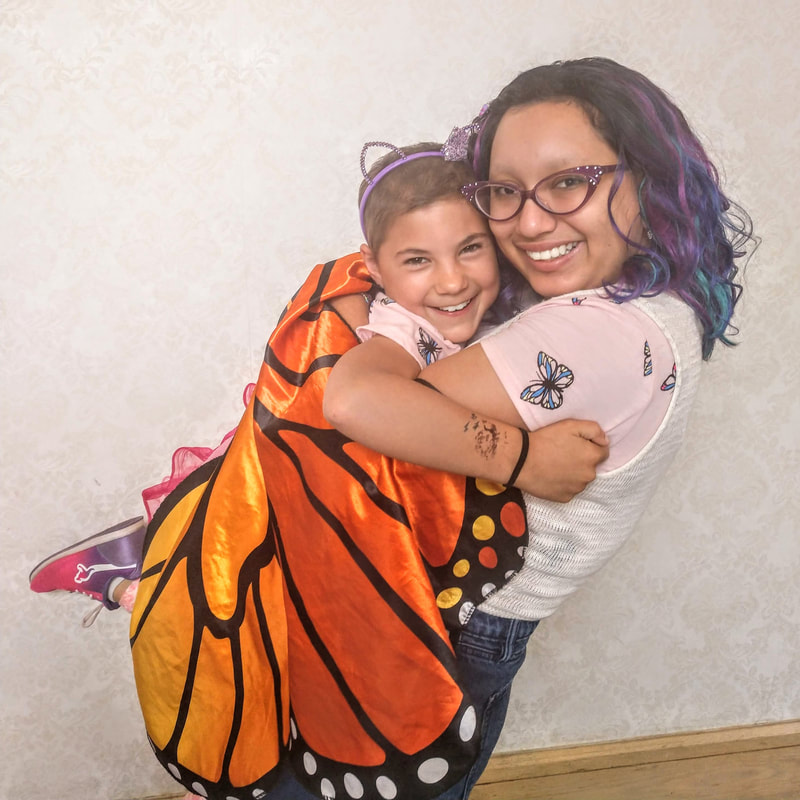
 RSS Feed
RSS Feed
